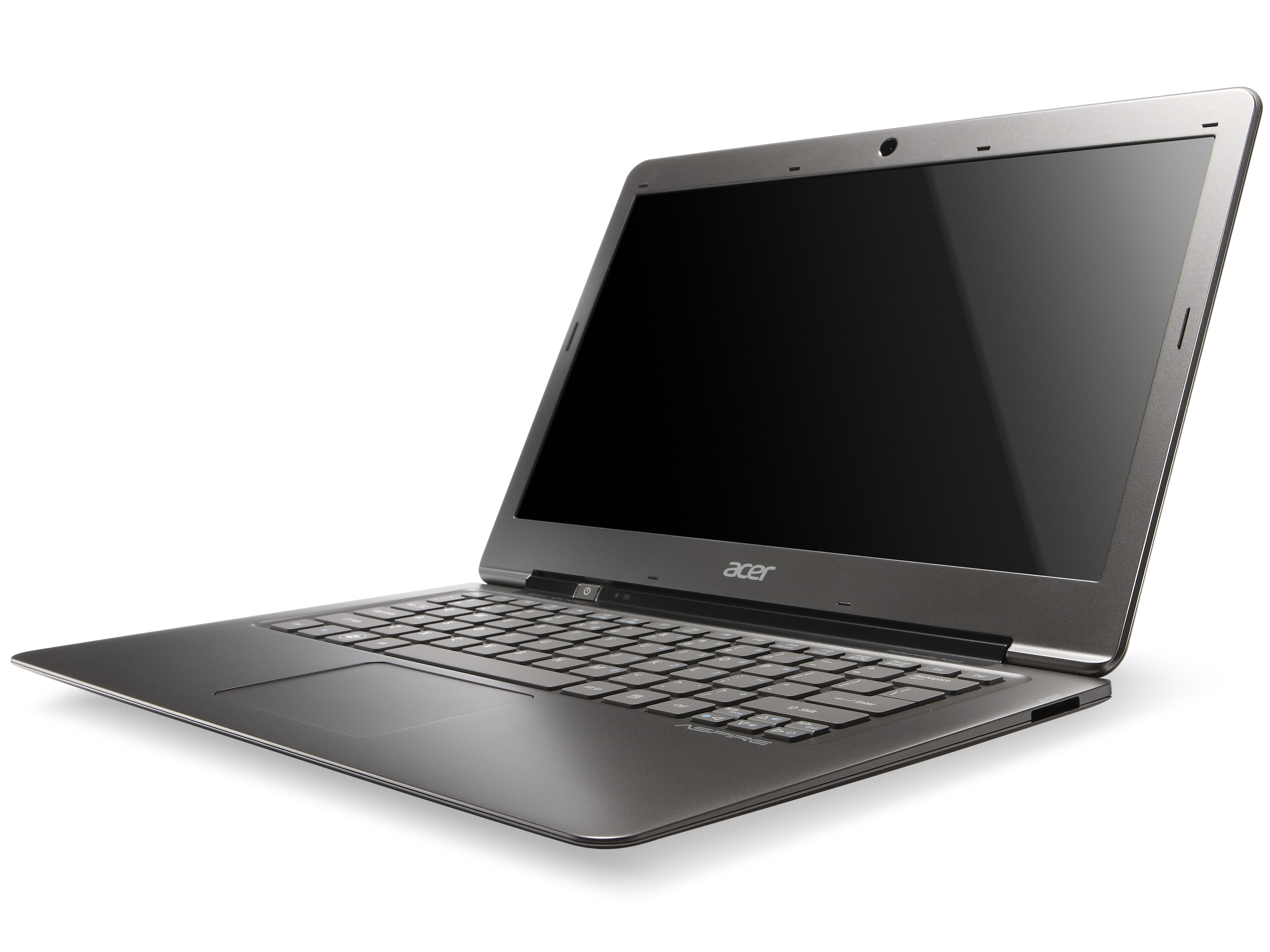Ultrabooks May Use Hybrid Storage to Cut Costs
Ultrabook manufacturers may follow Acer's lead by using hybrid HDDs instead of SSDs in future waves.
Given that storage components account for 10 to 15-percent of an ultrabook's total cost, unnamed sources from "ultrabook players" are reporting that manufacturers will likely ditch pricey high-capacity SDDs and rely on hybrid storage solutions for future ultrabook models. This is expected to help reduce costs while also fulfilling Intel's goal of a sub-$1000 pricetag and retaining high storage capacities.
The news follows reports that ultrabook manufacturers will start using fiberglass frames instead of aluminum which will also help keep production costs low. Because manufacturers aren't getting a subsidy on Intel processors, they're looking at other avenues of reducing the overall cost without sacrificing critical components.
The new ultrabook form factor requires storage to be smaller than a standard 9.5-mm hard drive while also having the ability boot into the operating system within 8 to 45 seconds. With those two factors in mind, manufacturers want to use a hybrid solution in future models, as they have a lower cost than standard high-capacity SSDs while also meeting Intel's fast boot time and storage efficiency.
As seen weeks ago, Acer launched its Aspire S3 series ultrabook using a combination of an HDD and an SSD in a stick form factor, throwing the operating system on the 20 GB SSD portion while leaving the 320 GB portion open for consumers. Other ultrabook manufacturers are possibly looking to do the same, sources claim, but consumers won't see hybrid solutions until future waves of ultrabooks arrive in 2012 or later. In the meantime, the initial wave will focus primarily on SSDs as seen with the Asus Zenbooks and the Lenovo IdeaPad U300.
Get Tom's Hardware's best news and in-depth reviews, straight to your inbox.

Kevin Parrish has over a decade of experience as a writer, editor, and product tester. His work focused on computer hardware, networking equipment, smartphones, tablets, gaming consoles, and other internet-connected devices. His work has appeared in Tom's Hardware, Tom's Guide, Maximum PC, Digital Trends, Android Authority, How-To Geek, Lifewire, and others.
-
back_by_demand How about allowing the storage option to be user-replacable, after all an SSD without it's metal casing would just be a PCB with a connector so you could swap out the same as with RAM chips.Reply
Have whatever size SSD at release and a booming cottage industry for SSD upgrade cards would flourish around it.
Simples! -
sonofhendrix Manufactures looking to save cost should use AMD processors.Reply
20GB is NOT enough space for a windows OS with windows update turned on and normal use. -
N.Broekhuijsen sonofhendrixManufactures looking to save cost should use AMD processors.20GB is NOT enough space for a windows OS with windows update turned on and normal use.Yeah, the Fusion chips are very nice! Whilst on the CPU department they don't stand a chance against the i7, in the graphics they obliterate the intel chipset. Definetely what I would prefer...Reply
Of course, knowing that intel is behind the whole ultrabook thing, AMD might have trouble with getting companies to use their APU's -
burnley14 Having Windows 8 when these are released will also help them manage startups between 8-45 seconds as well.Reply -
de5_Roy intel acted like an ass not reducing cpu prices for ultrabooks oems. in a few months ivy bridge comes out and sb ultrabooks will get totally outperformed by ivb. meanwhile, llano cpus can make better ultrabooks because they have better igp.Reply -
digiex ReplyBecause manufacturers aren't getting a subsidy on Intel processors, they're looking at other avenues of reducing the overall cost without sacrificing critical components.
Oh, really? -
hpglow BaronMatrixJust don't expect Intel to do anything except raise component prices.That is strange it defys how ICs work. The next gen is always faster and cheaper.Reply
When I bought a modest 486 in the 90s it cost me almost $3000 to build. Now days it costs me less than $1000 to build a decent i5 2500k rig with a 560 ti. So where is this price increase you are talking about? intel may increase proffit margins with every gen but the price per market segment has stayed about the same.
